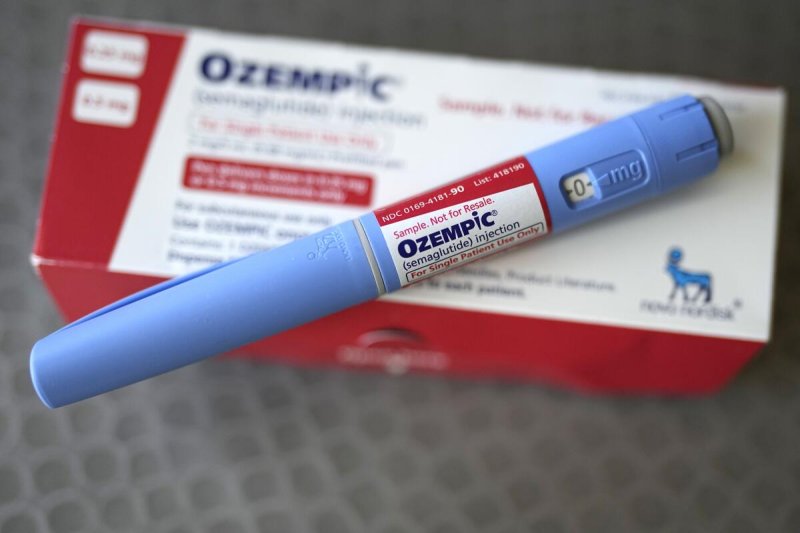Ozempic has become a household name for weight loss, especially among celebrities and health-conscious individuals. This medication, originally used for managing diabetes, gained fame for helping people shed pounds effortlessly. As its popularity soared, so did its price, making it out of reach for many.
But what happens when the patent protecting Ozempic’s unique formula expires? In Canada, that moment is set for January 2026. This could open doors to more affordable options and widen access for everyone. Let’s explore how this change can transform weight-loss treatments, not just in Canada but around the globe.
The Patent Timeline and Its Expiration in Canada
Significance of Pharmaceutical Patents
Patents serve as a shield for companies inventing new drugs. They give a temporary monopoly, meaning only the patent holder can produce and sell the medication. This exclusivity often keeps drug prices high because no competitors can offer cheaper alternatives. Once the patent ends, other manufacturers can jump in with their versions, usually at a lower cost.
Details of Ozempic’s Canadian Patent Expiration
Ozempic’s patent protection in Canada is set to expire in January 2026. After that date, other companies can start developing similar drugs, known as generics or biosimilars. These options could be much cheaper, making treatment accessible to more people. The expiration opens a window for new players to challenge the current pricing structure.
Impact of Patent Expiry on the Pharmaceutical Industry
When patents expire, the market often becomes much more competitive. New companies can produce competing drugs, which drives prices down. Some may focus on biosimilars — nearly identical copies of biologic drugs like Ozempic. This shift can shake up the industry, encouraging innovation and more affordable options for patients.
Market Implications of Ozempic’s Patent Expiry
Increased Competition and Lower Prices
Once patent protection ends, expect prices to fall sharply. This has happened with many other drugs. For example, when the patents on certain insulin products expired, generic versions helped cut costs significantly. The same could happen with Ozempic once biosimilars hit the market.
Potential for Generic and Biosimilar Versions
Generic versions of Ozempic could appear within a few years after patent expiry. Biosimilars, which are complex but similar biologic drugs, might take longer to approve but can still offer lower prices. Past drugs like Humira saw biosimilar versions enter the market roughly four to five years after patent expiration, often transforming the market.
Impact on Prescribing Practices and Patient Access
Lower prices typically lead to more doctors prescribing the medication, especially for patients with limited insurance coverage. Access could expand beyond wealthy circles to include people in lower income brackets. This means more options for those seeking weight-loss solutions or managing diabetes simultaneously.
Accessibility and Affordability of Weight-Loss Treatments
Cost Analysis Before and After Patent Expiry
Today, Ozempic can cost hundreds of dollars a month, limiting its use. When generics or biosimilars arrive, prices might drop by 50% or more. As a result, treatment could become affordable for many who currently cannot pay for it.
Broader Access in Canada and Abroad
Lower costs could make Ozempic-like drugs available in smaller towns and remote areas. Internationally, countries with similar patent laws could see comparable benefits. This could be a tipping point toward global access to affordable weight-loss medicines.
Barriers Remaining Despite Lower Prices
Even with cheaper options, some hurdles remain. Insurance plans might not cover generics immediately. Supply chain issues could delay distribution, especially in rural regions. Policymakers and providers need to prepare for these challenges.
Regulatory, Legal, and Ethical Considerations
Approval Process for Generic and Biosimilar Ozempic
Getting a generic or biosimilar approved isn’t always quick. Companies need to conduct tests to prove safety and effectiveness. In Canada, Health Canada handles this process, which might take a few years after patent expiration. A smooth approval process benefits everyone.
Patent Litigation and Patent Thickets
Sometimes, brand-name companies fight to extend patents or block competitors. This can delay generic entry. Legal battles may slow down the arrival of lower-cost options, but eventually, market forces tend to prevail.
Ethical Implications
Making expensive drugs accessible raises ethical questions. Is it fair to keep vital medications out of reach for the sake of profits? Once patents expire, broader access helps ensure everyone benefits from medical advances, not just a wealthy few.
Future Outlook and Actionable Tips
Potential Impact on the Weight-Loss and Diabetes Markets
As prices drop, more people might try medications like Ozempic. Doctors could start considering it sooner for weight management, not just diabetes. This could change how healthcare providers approach obesity and metabolic health.
Preparing for the Post-Patent Market
Healthcare providers should keep an eye on upcoming biosimilars, so they can recommend affordable options. Patients must learn to ask about generic alternatives. Policymakers can push for quicker approvals and better insurance coverage to maximize benefits.
Monitoring Industry and Regulatory Developments
Staying informed helps you get the latest updates on drug approvals and patent changes. Resources like government websites or medical news outlets are good starting points. Being proactive means you won’t miss out on new, affordable treatment options.
Conclusion
The expiration of Ozempic’s Canadian patent in January 2026 could change the way we approach weight loss and diabetes treatments. It promises to bring more affordability and widen access to those in need. By understanding the process, potential hurdles, and opportunities ahead, we can better prepare for what’s coming. Staying informed allows us to take advantage of new options and advocate for fair pricing. The future for weight-loss medications looks brighter — more choices, lower prices, and broader access for everyone.
Word Count: 1,015

Ann Cinzar
Ann Cinzar lives in Ottawa, Ontario with her husband Mike, daughter Rosie, and their dog Reese. She is passionate about family life and loves Canada.






Leave a comment?
To write a comment, you must login or register first.